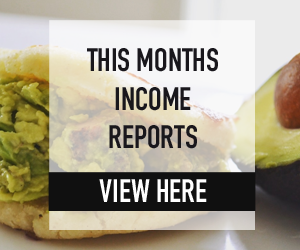What is El Día de los Inocentes?
El Día de los Inocentes, also known as the Day of the Holy Innocents, is a holiday celebrated in many Latin American countries on December 28th. In Colombia, this day holds a special significance and is deeply ingrained in the country’s culture and traditions. Let’s dive into the origins and customs of El Día de los Inocentes in Colombia, as well as its modern-day celebration. So, let’s get started!
What is the History of El Día de los Inocentes in Colombia?
The origins of El Día de los Inocentes can be traced back to the biblical story of King Herod’s order to kill all male infants in Bethlehem in an attempt to eliminate the newborn Jesus. According to the story, the innocent children who were killed became known as the Holy Innocents, and their deaths were later commemorated as a day of remembrance.
In Colombia, this holiday has been celebrated since the colonial era, with a mixture of Catholic and indigenous traditions. It is believed that the Spanish colonizers brought the holiday to the country and merged it with the indigenous celebration of the winter solstice.
How is El Día de los Inocentes Celebrated in Colombia?
El Día de los Inocentes is a day of pranks and jokes in Colombia, similar to April Fools’ Day in other countries. It is a time for people to play practical jokes on their friends and family, and even on strangers. The pranks can range from harmless and funny to elaborate and mischievous.
One of the most common pranks is to put a fake animal or insect in someone’s bed, causing them to scream and jump in surprise. Another popular joke is to switch the sugar with salt in the kitchen, leading to some interesting reactions when the victim takes a sip of their coffee or tea.
However, El Día de los Inocentes is not just about playing pranks. It is also a day for people to spend time with their loved ones, sharing laughter and creating memories. Families and friends often gather for a meal or a picnic, where they can enjoy delicious traditional dishes and exchange gifts.
What are Some Traditional Foods and Activities on El Día de los Inocentes?
As with many holidays in Colombia, food plays a significant role in the celebration of El Día de los Inocentes. One of the most popular dishes is lechona, a whole roasted pig stuffed with rice, peas, and spices. Another traditional food is tamales, which are made with corn dough and filled with meat, vegetables, and spices, then wrapped in banana leaves and steamed.
Aside from food, there are also various activities that people engage in on El Día de los Inocentes. In some cities, there are parades and processions with floats and costumes to commemorate the holiday. Children often participate in games and competitions, such as egg-and-spoon races and sack races.
How is El Día de los Inocentes Celebrated in Modern Times?
While the traditional customs of El Día de los Inocentes are still prevalent in Colombia, the holiday has also evolved with modern times. In recent years, social media has played a significant role in the celebration, with people pranking their followers and sharing their pranks online.
In addition, businesses and brands have also joined in on the fun, using the holiday as an opportunity for creative marketing campaigns and promotions. Some companies even launch fake products or services on this day, adding to the humorous spirit of the holiday.
Other Ways People Asked This Question
- What is the significance of El Día de los Inocentes in Colombia?
- How do Colombians celebrate El Día de los Inocentes?
- What are some traditional foods eaten on El Día de los Inocentes in Colombia?
- How has social media influenced the celebration of El Día de los Inocentes in Colombia?
- What are some popular pranks played on El Día de los Inocentes in Colombia?














